Publications
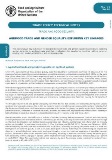
Agrifood trade and gender equality: exploring key linkages
01/07/2023
The note analyses key features of the interplay between trade and gender equality in agriculture exploring gender dynamics in agrifood value chains and their implications for developing countries, with a focus on the dimensions of employment, market participation and entrepreneurship. Globally, gender inequalities constrain women’s access to agrifood markets and have an impact on agricultural value chain development, trade performance and economic growth. 13 p.
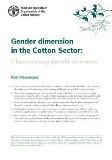
Gender dimension in the Cotton Sector: characterising the role of women
01/07/2023
Cotton is an important source of livelihood for millions of smallholders worldwide and women contribute significantly to cotton farming, constituting a large share of the workforce involved in primary production. However, women face disproportionate barriers along the cotton value chain in terms of access to land, inputs and services that affect the quality of their participation and the benefit they can derive. 14 p.
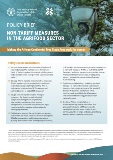
Making the AfCFTA work for women in the agrifood sector
08/06/2023
The African Continental Free Trade Area (AfCFTA) offers improved trading opportunities for farmers, processors, entrepreneurs of micro, small and medium-sized enterprises, traders and informal cross-border traders across urban, peri-urban, rural and border areas. The simplified requirements under the agreement provides the possibility of moving beyond informality into the formal economy. 8 p.

Advancing parliamentary action for gender equality and investment in agrifood systems
02/06/2023
As recognized at the United Nations Food Systems Summit in 2021, in order to build back better in times of global crises, it is critical to design sound gender-responsive, transparent and stable policies, and to create legal frameworks and incentives which are essential to enhancing responsible investment in agriculture and food systems.
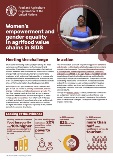
Women’s empowerment and gender equality in agrifood value chains in SIDS
01/06/2023
An essential part of the solution to improve nutrition and respond to the climate crises is the transformation of agrifood systems in SIDS.
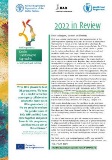
2022 in Review - Joint Programme on Gender Transformative Approaches for Food Security and Nutrition
01/06/2023
The 'JP GTA - 2022 In Review' offers a snapshot of the milestones, achievements and activities of the Joint Programme over the course of the past year, with links to articles, publications and event recordings. 12 p.

Addressing gender issues in pesticide management
17/05/2023
This brochure highlights the gender-related implication of pesticide use and management, focusing on the role of women in handling hazardous pesticides in agriculture, the reasons why they are at higher risk and the health-related implications they face. 20 pp.
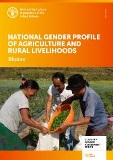
Bhutan: Country Gender Assessment of agriculture and the rural sector (Country Gender Assessment Series)
17/05/2023
Bhutanese women are vital players in the food security and nutrition landscape. However, there still remain gender inequalities and constraints. This assessment analyses the agricultural and rural sector of Bhutan from a gender mainstreaming perspective in areas where FAO assists in realizing rural women’s rights and potential. 84 pp.
